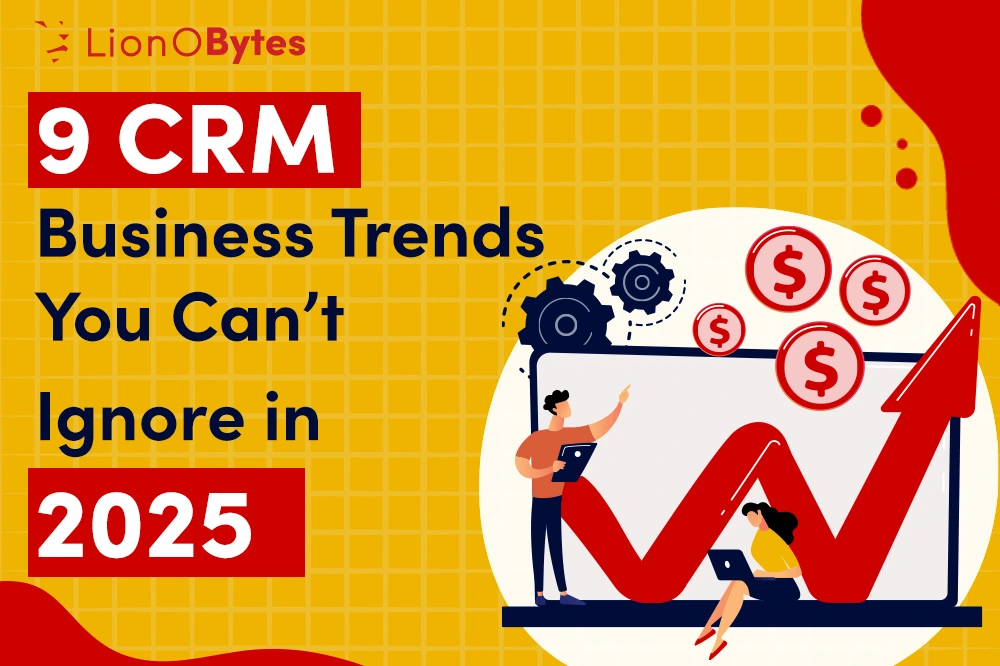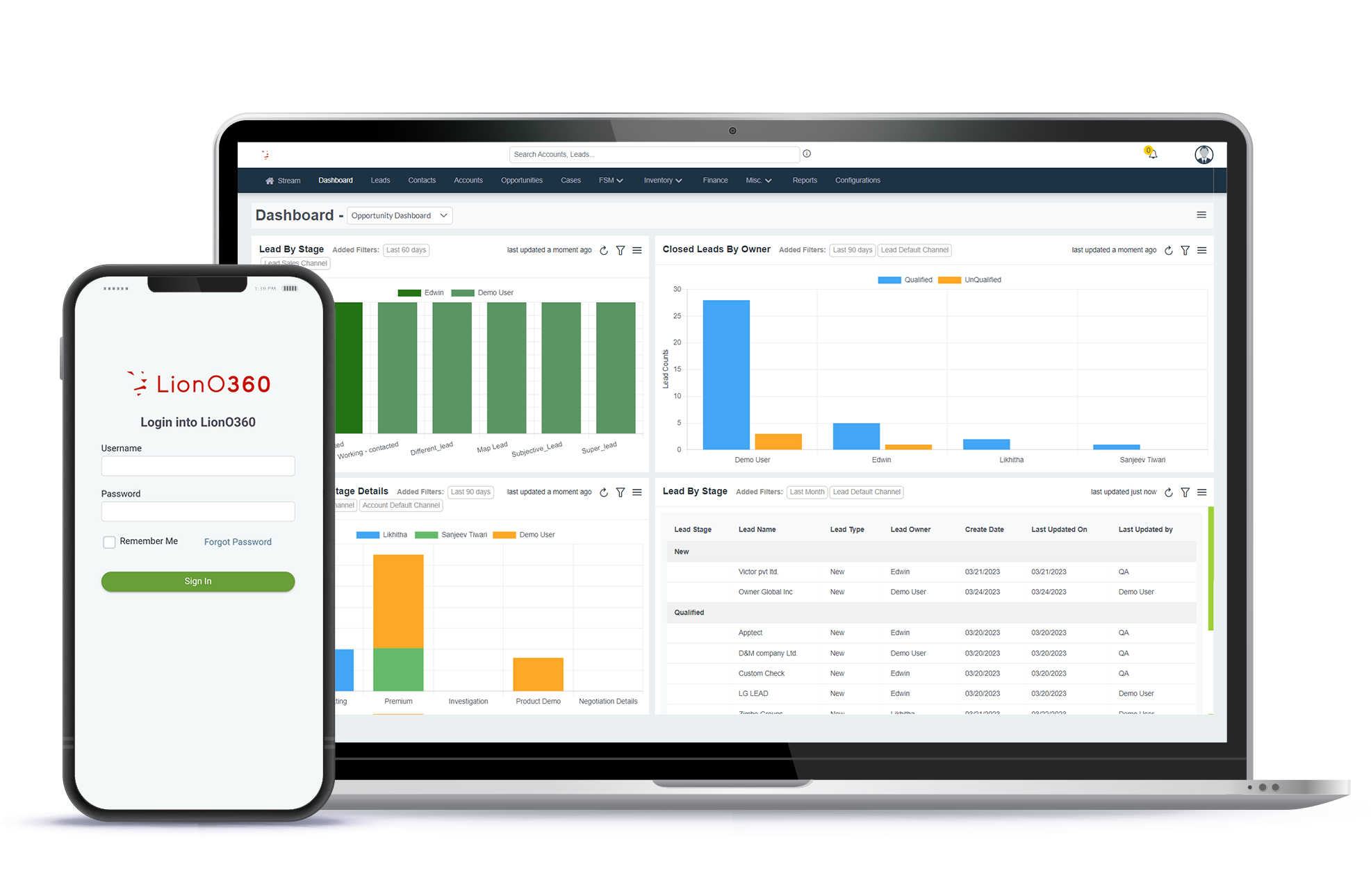
AI is evolving everywhere, including in your customer management. Today, CRM has evolved into a strategic growth enabler for businesses of all sizes. According to a recent report by Fortune Business Insights, the global CRM software market is expected to cross 100 billion USD by 2025, making it one of the fastest-growing sectors in enterprise technology. One more survey says that companies with advanced CRM platforms have experienced improved sales conversions and more retention.
This shift is not just about technology but about reimagining how businesses connect with customers, understand their needs, and deliver personalized experiences. The future of CRM lies in intelligence, automation, and adaptability. To stay relevant, businesses must keep track of emerging CRM trends in 2025 that are reshaping industries.
Below, we will explore the nine most important customer relationship management trends you cannot ignore this year, their effects on businesses, the challenges growing companies face, and how solutions like LionO360 CRM can help them lead the way.
9 Key Trends Shaping the Future of CRM In 2025
1. AI-Driven Personalization: Delivering Customized Customer Experiences
Artificial Intelligence is no longer optional in CRM. Businesses are using AI to predict customer behavior, recommend products, and personalize interactions. In 2025, hyper-personalization is a critical factor in winning customer loyalty.
2. Conversational CRM: Chatbots, WhatsApp & Voice Assistants
Customers now prefer real-time conversations through chatbots, WhatsApp, and voice assistants. CRM systems integrate conversational AI to provide instant support and build stronger relationships.
3. Data Privacy and Compliance: Building Customer Trust
With stricter global data protection laws, CRM solutions are increasingly designed to ensure transparency, consent, and secure data storage. Businesses that fail to adapt may lose customer trust.
4. Mobile-First CRM: Powering Remote and Field Sales
Workforces are becoming more mobile and remote. Mobile-first CRM ensures that sales teams, field agents, and managers have real-time access to data and customer history on the go.
5. Seamless Integrations: CRM Within Your Business Ecosystem
Modern CRMs are no longer stand-alone tools. They are integrated with ERP, marketing automation, and analytics systems to provide a unified view of the business.
6. Predictive Analytics: Smarter, Data-Backed CRM Decisions
Predictive analytics helps businesses identify potential leads, forecast sales, and detect risks early. CRMs with built-in analytics are turning raw data into actionable insights.
7. Customer Self-Service: Empowered by CRM Platforms
Customers increasingly want to resolve issues themselves. Self-service portals, knowledge bases, and AI-driven FAQs in CRM platforms empower customers while reducing support costs.
8. Industry-Specific CRMs: Customized for Every Sector
Generic CRM solutions are giving way to industry-specific ones, tailored for manufacturing, retail, healthcare, and service industries. These solutions come with pre-built features designed for sector needs.
9. CRM for Subscription Models: Supporting Recurring Revenue
With more businesses moving towards subscription models, CRM systems now manage recurring billing, renewals, and customer engagement strategies to ensure long-term retention.
How CRM Trends in 2025 Will Impact Businesses
Stronger customer review, personalization and predictive insights ensure customers feel valued, leading to higher retention. Here are the details of an after effect of CRM industry trends:
Faster Response Times
Conversational CRM and self-service portals cut down waiting time for customers.
Smarter Decision-making
Predictive analytics allows companies to forecast demand and manage risks.
Greater Efficiency
Mobile-first CRM and integration with other tools reduce duplication of work.
Improved Trust
Data privacy measures build long-lasting customer trust and compliance readiness.
Cost Reduction
Automation and self-service reduce dependency on large support teams.
Industry Relevance
Sector-specific CRM ensures businesses meet their unique operational needs.
Revenue Growth
Subscription-ready CRM models help companies stabilize revenue through renewals and upgrades.
LionO360 CRM: Your Gateway to Stronger Customer Bonds

LionO360 CRM is a cloud-based AI-Powered CRM solution that addresses the challenges of today’s businesses while embracing the future trends of CRM. LionOBytes offers a 360-degree view of customers, helping companies track leads, manage sales pipelines, automate marketing campaigns, and streamline customer support in one place.
What makes LionO360 stand out is its AI-driven insights, mobile-first design, and field service management capabilities, which are rarely found together in a single platform. It also supports industry-specific modules, making it relevant for diverse businesses like manufacturing, healthcare, and retail.
For growing companies, LionO360 is a business growth partner. It reduces costs, simplifies processes, ensures data security, and helps deliver the personalized customer experiences that modern consumers demand. Book your free demo here to experience it!
Also Read: Future of CRM
Frequently Asked Questions
1. What are the key CRM trends for 2025?
The most essential CRM trends include AI-driven personalization, conversational CRM, predictive analytics, self-service, mobile-first adoption, data privacy compliance, integration with other tools, industry-specific CRMs, and subscription support.
2. Why is AI important in CRM?
AI helps businesses predict customer behavior, personalize interactions, and make smarter decisions. It improves sales conversions and customer satisfaction by turning data into actionable insights.
3. How can CRM help small businesses grow?
CRM provides affordable tools to manage leads, track customer interactions, automate marketing, and offer customer support. Cloud-based CRMs like LionO360 are especially suitable for small businesses.
4. What is the role of mobile-first CRM?
Mobile-first CRM ensures that employees can access customer data, update records, and communicate with clients anytime, anywhere. It is vital for field sales and remote work.












